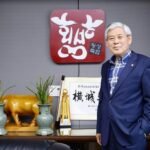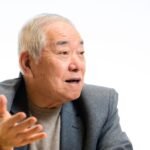South Korean politicians agree not to introduce the financial investment income tax
South Korea is set to scrap a plan to impose tax on gains from financial investments – a scheme slated to be introduced early next year – to boost the country’s sluggish stock market.
Korea’s main opposition Democratic Party (DP) on Monday decided to back the government and ruling People Power Party’s push to abolish the financial investment income tax, adding that the domestic stock market is suffering “structural vulnerability” and facing a downward trend unlike others.
“I believe in taxation on financial gains and oppose the idea of excluding capital gains from taxation. However, I cannot avoid considering the position of 15 million stock investors leaning on the stock market, which is in a precarious situation,” DP leader Lee Jae-myung said during a party meeting at the National Assembly.
“We have decided to support the government and the ruling party’s push for the abolishment of the financial investment income tax,” he said.
The Democratic Party is a majority in parliament, controlling 171 seats of the 300 National Assembly seats.
Main opposition Democratic Party leader Lee Jae-myung (center) speaks during a party meeting at the National Assembly
The government and the ruling party have been pushing for the abolishment of the tax – originally due to take effect last year but was delayed by two years until 2025.
Under the tax scheme, capital gains of more than 50 million won ($36,400) from stock and fund investments would be subject to a 20% tax, while profits over 300 million won would be subject to a 25% tax. When local income taxes are added, the taxation rates would rise to 22% and 27.5%, respectively.
The government and the ruling party wanted to repeal the tax scheme to revitalize the dampened Korean stock market, while the main opposition party opposed tax breaks largely designed for the wealthy.
“We’ve considered raising the tax exemption threshold from 50 million won to 100 million won, but ultimately concluded that this would not address the structural risks and vulnerabilities in the current stock market,” Lee said.
Market participants and investors welcome the political decision not to implement extra capital gains tax
LEE’S ABOUT-FACE
Analysts said Lee’s about-face was influenced by the power of individual investors, who could turn against him during the next presidential election in March 2027.
Advocating for a delay in implementing the tax would risk investor backlash and could expose the opposition party and its leader to criticism in the lead-up to the next presidential election, analysts said.
Lee, who lost the previous presidential poll in 2022 to Yoon Suk Yeol, is widely expected to run in the next presidential race as the DP candidate.
“If we delay or implement the tax scheme with modifications, it would likely be a constant source of political conflict,” Lee said.
While criticizing the government for adding fuel to the “Korea discount” by instigating military threats from North Korea, the DP leader said he would pursue further legal reforms, including amendments to the Commercial Act, to modernize the stock market.
The Korean stock market is suffering fom the so-called Korea discount
MARKET WELCOMES DECISION
Analysts said the repeal of the financial investment income tax would reduce policy uncertainty and encourage more capital inflow to the Korean stock market.
“Some Korean investors have favored overseas markets on concerns about the introduction of the tax. The decision will dissipate such sentiments and provide a mid- to long-term incentive for investing in the domestic market,” said Park Sang-hyun, an analyst at iM Securities.
Ha In-hwan, a KB Securities analyst, said the repeal will particularly benefit the Kosdaq market, a favored market for individual investors.
The Korea Exchange, the Korean stock market operator, also welcomed the opposition party leader’s decision, saying that it would contribute to revitalizing the stagnant capital market.
A local brokerage official said: “Had the tax scheme been implemented, we anticipated difficulties not only in the stock market but also in the bond market.”
By Jae-young Han and Sung-Mi Shim
jyhan@hankyung.com
In-Soo Nam edited this article.















